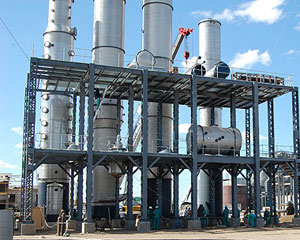
Plans are underway to increase the maximum mandatory fuel blending to 20% despite concerns by motorists that the move would damage vehicles.
BY VENERANDA LANGA
Deputy Energy and Power Development minister Munacho Mutezo (pictured right) told Parliament on Thursday that an Act of Parliament made blending compulsory and government would increase the mandatory blending from the current 15%.
“The current percentage of blend is 15% and plans are afoot to bring it up to the maximum of 20% as was stated by the President when he officially opened Parliament,” Mutezo said.
Motorists are against the current 15% blending while car assemblers have also warned that the move would damage vehicles.
Mutezo was answering to a question by MDC-T Manicaland Senator Patrick Chitaka who wanted to know the ministry’s position on ethanol blending.
Chitaka said the minister should give clarity as there were conflicting reports regarding ethanol blending with some people saying the maximum was at E15, while others said it was at E20. “The position with regards to ethanol is that we have an Act of Parliament that makes blending of ethanol compulsory in the country,” said Mutezo.
Mutezo said the Zimbabwe Energy Regulatory Authority (Zera) was comfortable with the blending ratio after carrying out consultations which came up with the conclusion that there was nothing wrong with ethanol blending.
- Chamisa under fire over US$120K donation
- Mavhunga puts DeMbare into Chibuku quarterfinals
- Pension funds bet on Cabora Bassa oilfields
- Councils defy govt fire tender directive
Keep Reading
MPs in Parliament last Wednesday said that the E15 was destroying fuel pumps on vehicles.
MDC-T Glen Norah MP Webster Maondera alleged some manufacturers of motor vehicles were telling motorists to use E15 blend at their own risk.
Maondera also claimed some fuel companies did not have equipment to test the quality of their fuel.
“We got our cars recently from a manufacturer and all MPs can testify that we were advised that if we do not get fuel from Engen and Total and get it from other fuel suppliers…the manufacturer will not honour the warranty to replace the pump,” Maondera said.
Mutezo said Zera was charged with the responsibility to ensure all fuel sold or disbursed to the market complied with the standards.
“On the issue of specifics for car suppliers forcing their customers to buy fuel from one supplier and not the other, I think it is a marketing issue,” he said.
Experts say blended fuel has also brought an extra cost as ethanol has a lower calorific value as compared to petrol.
The calorific value is the power one gets from either petrol or ethanol. For instance, 10 litres of ethanol is equivalent to 7,2 litres of petrol.
Experts say blended fuel should be available as an alternative to fossil fuels and consumers must be allowed to make choices.










